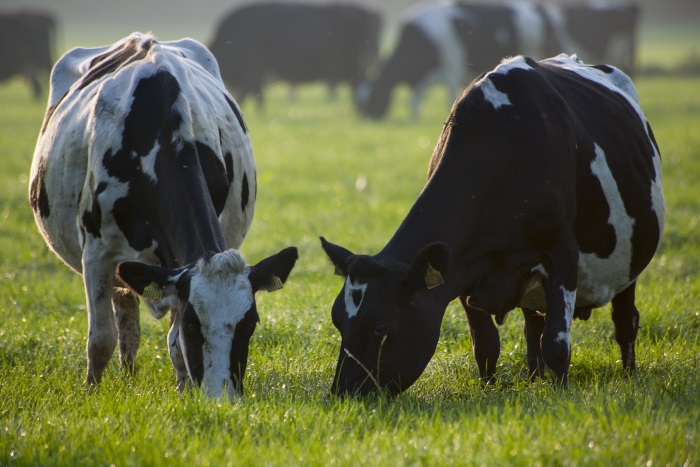A government-backed badger vaccination scheme has been relaunched today by the farming minister George Eustice to help stop the spread of bovine TB (bTB) in England.
The relaunched Badger Edge Vaccination Scheme, which was suspended for two years following a global vaccine shortage, opens for expressions of interest today, with projects set to start in spring 2018. Successful applicants will receive a government grant for 50% of their costs from a fund worth £700,000 over four years.
The government also announced a contract has been awarded to deliver a new bTB advisory service which will offer clear, practical advice to help farmers protect their herds from the disease and manage the impacts of a TB breakdown on their farm.
Both measures are key parts of the government’s strategy to eradicate bTB in England, which includes one of the most rigorous cattle surveillance programmes in the world, strong movement controls, promoting good biosecurity, and badger control where the disease is rife.
Bovine TB costs taxpayers over £100m every year and England has the highest incidence of the disease in Europe. In 2016 more than 29,000 cattle had to be slaughtered in England to control the disease, causing devastation and distress for farmers and rural communities.
George Eustice said: “Bovine TB not only has a devastating impact on our beef and dairy farms, but causes harm and distress to infected cattle. We have a clear plan to eradicate the disease over the next 20 years and this year we are restarting the government-backed Badger Edge Vaccination Scheme to stop the disease spreading to new areas.
“Vaccination is just one part of our comprehensive strategy, which also includes tighter cattle controls, improved biosecurity and badger control in areas where bTB is rife to tackle the reservoir of disease in wildlife.
“While our eventual aim is to eradicate the disease completely, farmers are facing the reality of bTB on their farms every day, which is why we are also launching a new bTB Advisory Service to offer advice to all farmers on limiting on-farm disease risk.”
New measures outlined include:
- Eleven additional licences for badger control covering parts of Devon, Wiltshire, Somerset, Dorset and Cheshire. Licences have been granted for supplementary badger control in areas of Gloucestershire and Somerset which have completed their original four-year licences.
- The relaunch of the Badger Edge Vaccination Scheme following suspension due to a global shortage of TB vaccine, with groups invited to submit expressions of interest and feedback on the criteria for the scheme.
- A new bTB Advisory Service for farmers to provide advice on-farm and by phone or email to farmers in High Risk and Edge Areas on bTB biosecurity and risk-based trading, set to launch this autumn.
- Tighter control of Inconclusive Reactors (IRs) in the High Risk and Edge Area, to come into force from 1 November.
The chief vet Nigel Gibbens said: “Taking action to prevent bovine TB infection of cattle from the reservoir of disease in local badger populations is an essential part of the government’s 25-year strategy to eradicate the disease in England. Proactive badger control is currently the best available option and the licensing of further areas is necessary to realise disease control benefits across the High Risk Area of England, rather than at local levels.
In 2016 badger control operations in Somerset, Gloucestershire, Dorset, Devon, Cornwall, Herefordshire and Wiltshire were all successful in meeting their targets, and the government is committed to introducing badger control over a wider number of areas in line with plans set out in the bTB strategy.
In response to these new measures the RSPCA issued a statement:
The RSPCA is appalled at the latest plans to issue eleven new badger cull licences. This more than doubles the number from ten to twenty-one – the biggest increase to date.
And though we welcome the relaunch of the Badger Edge Vaccination Scheme, this cannot be seen as a pro-active, humane action from the government. It is merely the result of vaccine once again becoming available.
We are now entering the fifth year for some culls, and after all that time, there is still no scientific evidence that culling is effective in reducing bovine TB in these areas. Indeed culling could be spreading the disease to new areas. Nor do we believe that the methods used in the cull are humane or that there is any proof the badgers being culled are indeed infected with the disease.
While the RSPCA agrees action is needed to deal with bovine TB, we do not believe culling badgers is an effective way to achieve this.
With vaccines now again readily available, it is right that the Government has re started the vaccination programme but this should not be misinterpreted as the Government converting its kill programme to using vaccines. The RSPCA urges that alternatives should be prioritised including an effective vaccination scheme, increased levels of cattle testing, improved biosecurity and stricter controls on the movement of cattle.
The original culls were licensed for four years, but to date there has been no published review of their effectiveness in controlling bovine TB in cattle in the pilot cull areas. With the number of cull areas growing from an initial two to today’s twenty-one makes us wonder what it will take for all those concerned to finally put up their hands, admit this project was a failure and call a halt to it once and for all.


